TITLE IX TRAINING
PART I: DEFINITIONS AND
OVERVIEW OF PROCESS

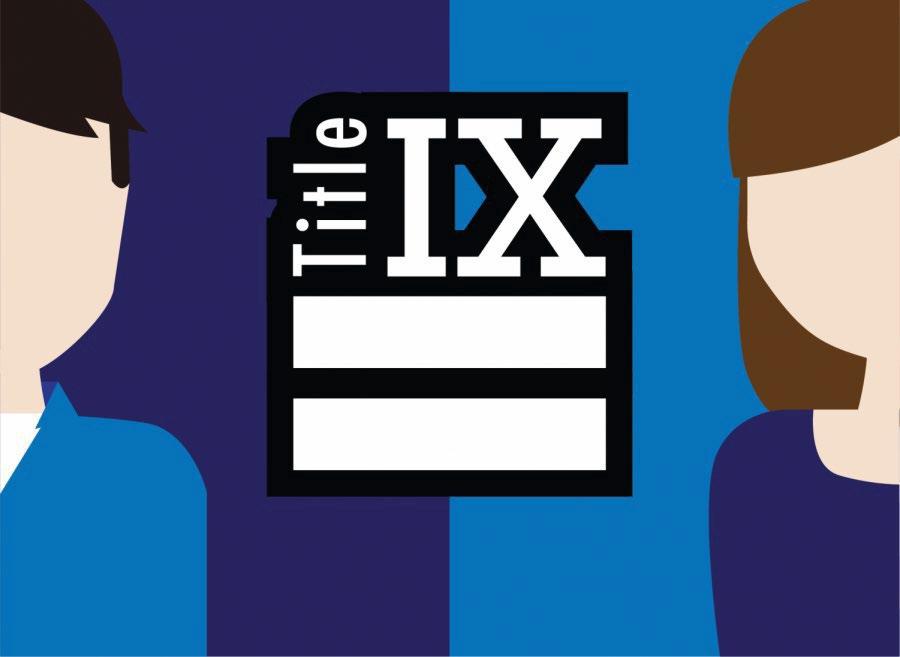




Copyright 2023 - Petrarca, Gleason, Boyle & Izzo, LLC
COPYRIGHT 2024 - PETRARCA, GLEASON, BOYLE & IZZO
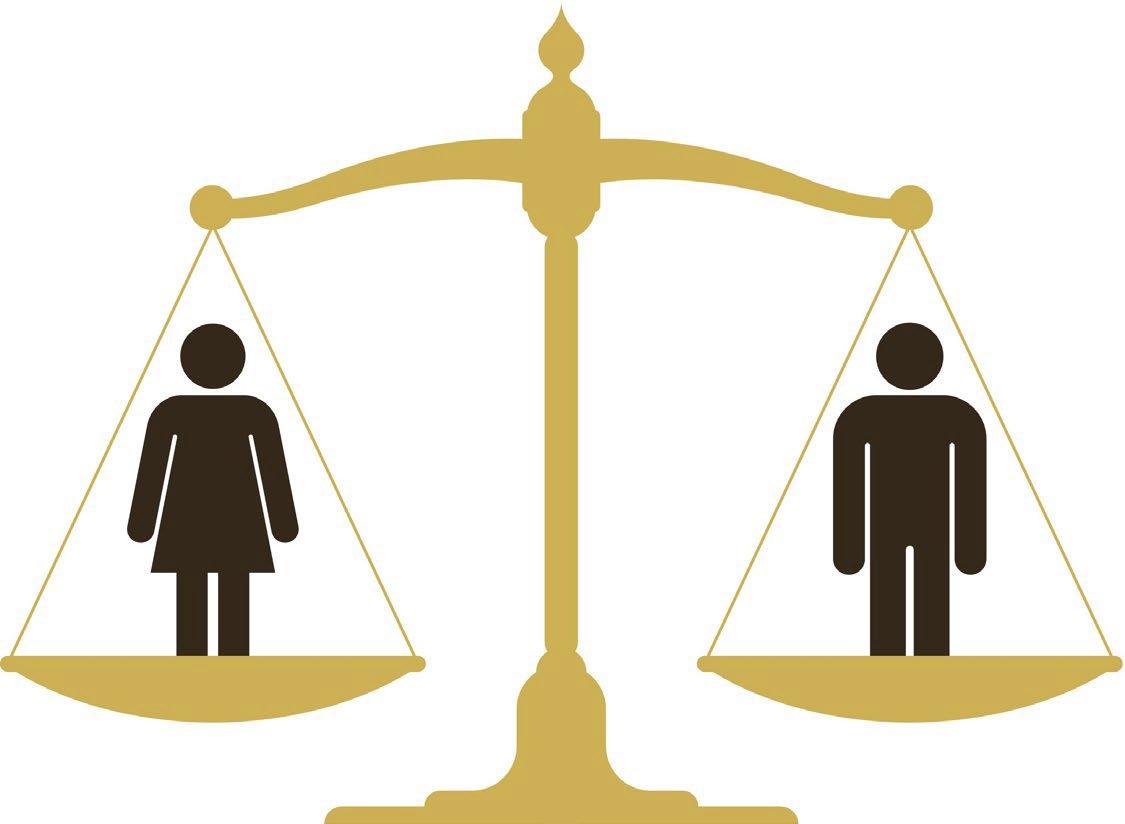
No person in the United States, on the basis of sex, shall be excluded from participation in, be denied any of the benefits of, or be subjected to discrimination under any educational program or activity receiving federal financial assistance.
20 USC 1681
2023 -
COPYRIGHT 2024 - PETRARCA, GLEASON, BOYLE & IZZO
• US DOE Office for Civil Rights- includes voluntary resolution process and determination of equitable relief.
• Courts- Complainant or Respondent may bring lawsuit for monetary damages.
Copyright 2023 - Petrarca, Gleason, Boyle & Izzo, LLC
COPYRIGHT 2024 - PETRARCA, GLEASON, BOYLE & IZZO
1. Adopt a nondiscrimination policy statement that identifies a Title IX Coordinator.
2. Adopt and implement procedures for receiving and responding to reports and complaints of sex-based harassment.
3. Adopt and implement a grievance process to address complaints of sex-based harassment.
4. Implement various notice, recordkeeping, and training requirements. Copyright 2023 - Petrarca, Gleason, Boyle & Izzo, LLC

Copyright 2023 - Petrarca, Gleason, Boyle & Izzo, LLC
COPYRIGHT 2024 - PETRARCA, GLEASON, BOYLE & IZZO
COMPLAINANT: Person who is the alleged victim of conduct that could constitute sex-based harassment.
RESPONDENT: Person who is reported to be the perpetrator of conduct that could constitute sexbased harassment.
Copyright 2023 - Petrarca, Gleason, Boyle & Izzo, LLC
COPYRIGHT 2024 - PETRARCA, GLEASON, BOYLE & IZZO
• Districts are required to adopt a formal grievance process to investigate and resolve complaints of sex-based harassment under Title IX.
• August 1, 2024 – Any complaint can be investigated through the grievance process (not just a formal complaint)
Copyright 2023 - Petrarca, Gleason, Boyle & Izzo, LLC
2024 - PETRARCA, GLEASON, BOYLE & IZZO
The grievance process must treat complainants and respondents equitably by (1) providing remedies to a complainant where a determination of responsibility for sexual based harassment has been made against the respondent; and (2) by following a grievance process that complies with the regulations before imposing any disciplinary sanctions against a respondent (other than emergency removals and administrative leaves).
Complainants and Respondents have equal opportunity in the investigation and decision-making processes.
Copyright 2023 - Petrarca, Gleason, Boyle & Izzo, LLC
• Process must provide for investigations, determinations of responsibility and appeals that are based on an objective evaluation of relevant evidence by individuals designated by the District who are free from bias, conflict of interest and prejudgment of facts.
• Process must include reasonably prompt time frames for conclusion.
Copyright 2023 - Petrarca, Gleason, Boyle & Izzo, LLC
2024 - PETRARCA, GLEASON, BOYLE & IZZO
REPORT of sex-based harassment Received- meet with complainant- may result in supportive measures
COMPLAINT- may result in Informal Resolution or Grievance Process.
GRIEVANCE PROCESS- Investigation, Determination of Responsibility, Appeal.
Copyright 2023 - Petrarca, Gleason, Boyle & Izzo, LLC
COPYRIGHT 2024 - PETRARCA, GLEASON, BOYLE & IZZO
A District that has actual knowledge of Title IX sexual harassment (discrimination) against an individual in the United States in an educational program or activity of the District, must respond promptly, in a way that is not deliberately indifferent.

Copyright 2023 - Petrarca, Gleason, Boyle & Izzo, LLC

Copyright 2023 - Petrarca, Gleason, Boyle & Izzo, LLC
COPYRIGHT 2024 - PETRARCA, GLEASON, BOYLE & IZZO
ALL OPERATIONS of the District.
Locations, events, or circumstances over which the District exercised substantial control over both the respondent and the context in which the sex-based harassment occurs, including off campus events.
August 2024: Schools are now responsible for addressing all sex discrimination and sexual harassment, including sex-based hostile environment, that occurs off-campus or outside of the United States. Specifically, any conduct that is subject to the School's disciplinary authority and to conduct that occurs in any building owned or controlled by a student organization officially recognized by the School. Copyright 2023 - Petrarca, Gleason, Boyle & Izzo, LLC

Copyright 2023 - Petrarca, Gleason, Boyle & Izzo, LLC
COPYRIGHT 2024 - PETRARCA, GLEASON, BOYLE & IZZO
• Quid pro quo harassment.
• Hostile environment.
• Sexual Assault (CleryAct)
• Dating violence
• Domestic violence
• Stalking
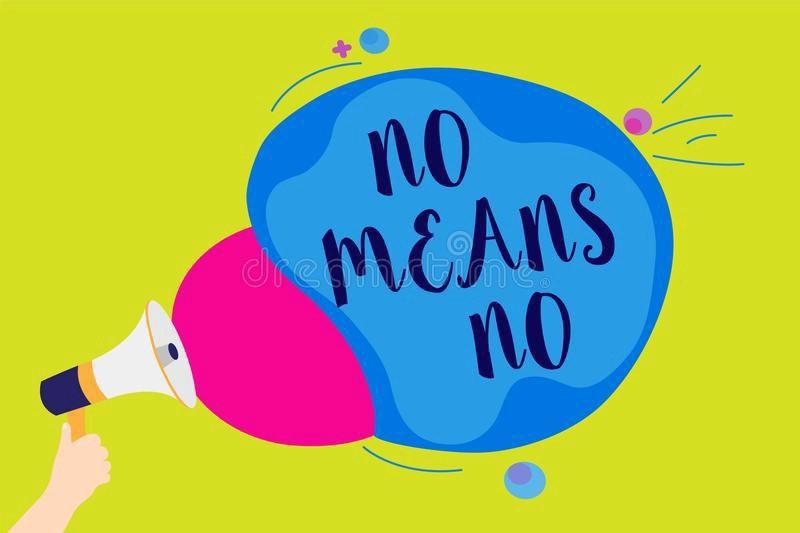
Copyright 2023 - Petrarca, Gleason, Boyle & Izzo, LLC
COPYRIGHT 2024 - PETRARCA, GLEASON, BOYLE & IZZO

Copyright 2023 - Petrarca, Gleason, Boyle & Izzo, LLC
COPYRIGHT 2024 - PETRARCA, GLEASON, BOYLE & IZZO
District employee conditions providing an aid, benefit or service on participation in unwelcome sexual conduct.
(“Something for Something”)
Copyright 2023 - Petrarca, Gleason, Boyle & Izzo, LLC
2024 - PETRARCA, GLEASON, BOYLE & IZZO
Teacher requires kiss from student in exchange for a good grade.
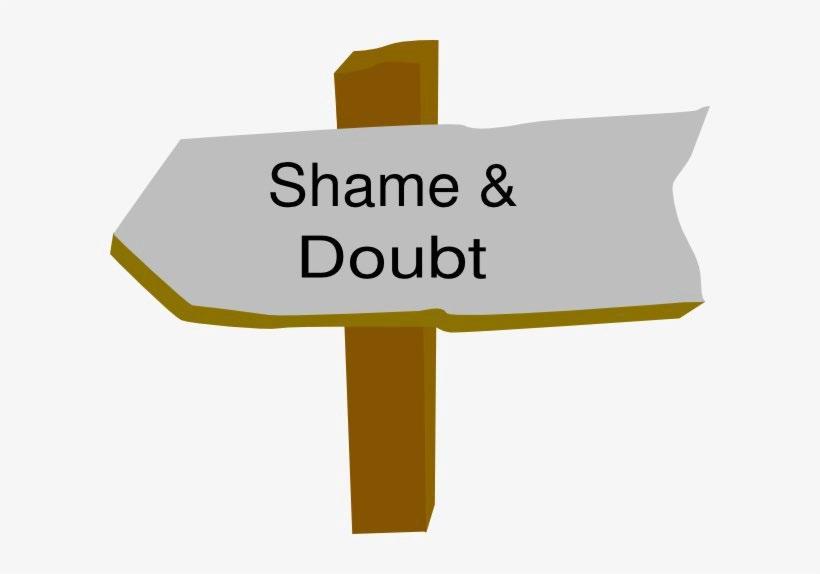
2024
• School employee to student or another employee.
• Interpreted broadly.
o Can be implied
o Can be a single instance
• No requirement of intent.
• No requirement that severe or pervasive.
• Must be unwelcome.
Copyright 2023 - Petrarca, Gleason, Boyle & Izzo, LLC
2024 - PETRARCA, GLEASON, BOYLE & IZZO

Copyright 2023 - Petrarca, Gleason, Boyle & Izzo, LLC
COPYRIGHT 2024 - PETRARCA, GLEASON, BOYLE & IZZO
Unwelcome conduct that is determined by a reasonable person to be so severe, pervasive, and objectively offensive that it effectively denies a person equal access to the school’s educational program or activity.
NEW REGS 8/1/24: subjectively and objectively offensive and is so severe or pervasive that it limits or denies a person’s ability to participate in or benefit from the education program or activity
Copyright 2023 - Petrarca, Gleason, Boyle & Izzo, LLC
• No intent required.
• Look at circumstances, expectations, relationships, location, frequency, gravity of conduct.

• This is a reasonable person standing in the shoes of the complainant.
• Regulations Commentary indicates that this is fact specific; the specific facts and circumstances of the incident and parties involved may cause different people to reach different conclusions.
Copyright 2023 - Petrarca, Gleason, Boyle & Izzo, LLC
• Severity considers the circumstances of the complainant, including age, disability, sex, and other characteristics.
• The Complainant need not prove severity, but only describe what happened. The School must determine if the situation is severe from the perspective of a reasonable person in the Complainant’s position.
Copyright 2023 - Petrarca, Gleason, Boyle & Izzo, LLC
2024 - PETRARCA, GLEASON, BOYLE & IZZO
Commentary indicates that “pervasive” is more than once. However, the school should investigate a single incident to determine if it is part of a pervasive pattern of harassment.
Copyright 2023 - Petrarca, Gleason, Boyle & Izzo, LLC
COPYRIGHT 2024 - PETRARCA, GLEASON, BOYLE & IZZO

• Unwelcome is without consent of victim and is subjective; Complainant does not wish to participate.
• Consider age, ability, culture of victim.
Copyright 2023 - Petrarca, Gleason, Boyle & Izzo, LLC
COPYRIGHT 2024 - PETRARCA, GLEASON, BOYLE & IZZO

Copyright 2023 - Petrarca, Gleason, Boyle & Izzo, LLC
COPYRIGHT 2024 - PETRARCA, GLEASON, BOYLE & IZZO
A student spreads rumors of a sexual nature through emails, texts, and social media about a classmate over a number of weeks.

Copyright 2023 - Petrarca, Gleason, Boyle & Izzo, LLC
COPYRIGHT 2024 - PETRARCA, GLEASON, BOYLE & IZZO
Throughout the football season, a team member makes sexual advances towards another team member and that player quits the team.
Copyright 2023 - Petrarca, Gleason, Boyle & Izzo, LLC
COPYRIGHT 2024 - PETRARCA, GLEASON, BOYLE & IZZO
A female teacher compliments a male student on his new haircut.
What if the teacher continues to compliment the student daily?
What if the teacher has been the subject of a prior sexbased harassment complaint by another student?
Copyright 2023 - Petrarca, Gleason, Boyle & Izzo, LLC
COPYRIGHT 2024 - PETRARCA, GLEASON, BOYLE & IZZO
Male teacher sends female student text messages and buys her gifts that her parents believe are inappropriately expensive.
Copyright 2023 - Petrarca, Gleason, Boyle & Izzo, LLC
COPYRIGHT 2024 - PETRARCA, GLEASON, BOYLE & IZZO

Copyright 2023 - Petrarca, Gleason, Boyle & Izzo, LLC
COPYRIGHT 2024 - PETRARCA, GLEASON, BOYLE & IZZO
SEXUAL ASSAULT: forcible or nonforcible sex offense as defined by the FBI’s uniform crime reporting system:
• Rape
• Sodomy
• Sexual Assault with an object
• Fondling
• Incest
• Statutory Rape

Copyright 2023 - Petrarca, Gleason, Boyle & Izzo, LLC COPYRIGHT 2024 - PETRARCA, GLEASON, BOYLE & IZZO
An Act of violence by a person who is or has been in a romantic or intimate relationship with the Complainant. Whether this relationship exists is determined by:
• Length of the relationship.
• Type of relationship.
• Frequency of interaction between the individuals involved. (does not require pervasiveness)
Copyright 2023 - Petrarca, Gleason, Boyle & Izzo, LLC

Violence committed by a current or former spouse or intimate partner, a person with whom the Complainant shares a child in common, a former or current cohabiter as a spouse or intimate partner, someone similarly situated to a spouse under domestic or family violence laws or a person against whom the Complainant is protected under domestic or family violence laws (e.g. under an order of protection).
Copyright 2023 - Petrarca, Gleason, Boyle & Izzo, LLC

Engaging in a course of conduct directed at a specific person that would cause a reasonable person with similar characteristics under similar circumstances to:
• Fear for his or her safety or the safety of others; or
• Suffer substantial emotional distress.
Must be sex-based stalking to qualify as sex - based harassment under Title IX.
Copyright 2023 - Petrarca, Gleason, Boyle & Izzo, LLC
COPYRIGHT 2024 - PETRARCA, GLEASON, BOYLE & IZZO

Copyright 2023 - Petrarca, Gleason, Boyle & Izzo, LLC
COPYRIGHT 2024 - PETRARCA, GLEASON, BOYLE & IZZO
• The Title IX Coordinator.
• A District official who has the authority to institute corrective measures; or
AUGUST 2024:
• ANY EMPLOYEE OF A SCHOOL,K - 12.
• Non- Confidential Employees have a duty to report
• Confidential Employees must inform the complainant how to report Title IX incidents
to:

• You personally see or hear something.
• You receive a verbal or written report from a student or from anyone.
• You receive multiple reports that together provide a different perspective of conduct than did a single report.
• A complaint is filed pursuant to the District’s Title IX Grievance Process.
Copyright 2023 - Petrarca, Gleason, Boyle & Izzo, LLC
• Any person may report sex-based harassment; it need not be the alleged victim.
• Sex-based harassment may be reported at any time.
• Reports can be made in person, by telephone, by mail or email, using the contact information listed for theTitle IX Coordinator.
• Reports can be made by any other means that results in the Title IX Coordinator receiving the verbal or written report.
• AUGUST 2024: New standard replaces the 2020 regulations requirement of “actual knowledge”
2023 - Petrarca, Gleason, Boyle & Izzo, LLC

The District must keep confidential the identity of any individual who makes a report or complaint of sex discrimination, including sex-based harassment, any complainant, any respondent, anyone who has been accused of sex discrimination or harassment and any witness, except as required by FERPA or to carry out the purposes of the regulations, including the investigation and grievance process, and unless confidentiality would impair the ability to provide supportive measures.
Copyright 2023 - Petrarca, Gleason, Boyle & Izzo, LLC
- PETRARCA, GLEASON, BOYLE & IZZO
No school district or other person may intimidate, threaten, coerce or discriminate against any person for the purpose of interfering with the person’s Title IX rights or because the person made a report or complaint, testified, assisted or participated in the Title IX grievance process.

Copyright 2023 - Petrarca, Gleason, Boyle & Izzo, LLC
2024 - PETRARCA, GLEASON, BOYLE & IZZO

Copyright 2023 - Petrarca, Gleason, Boyle & Izzo, LLC
COPYRIGHT 2024 - PETRARCA, GLEASON, BOYLE & IZZO
A District is deliberately indifferent if its response to an allegation of sex-based harassment is “clearly unreasonable in light of the known circumstances.”
Copyright 2023 - Petrarca, Gleason, Boyle & Izzo, LLC
COPYRIGHT 2024 - PETRARCA, GLEASON, BOYLE & IZZO
“Clearly
unreasonable” is not defined in the regulations, but the regulations require that the District treat complainants and respondents equitably:
Complainant- supportive measures
Respondent- disciplined only after responsibility determined in grievance process
Copyright 2023 - Petrarca, Gleason, Boyle & Izzo, LLC
- PETRARCA,
1) Supportive Measures- regardless of whether a formal complaint is filed.
After a complaint is filed:
2)Voluntary Informal Resolution.
3)Formal Grievance Process.
Copyright 2023 - Petrarca, Gleason, Boyle & Izzo, LLC
COPYRIGHT 2024 - PETRARCA, GLEASON, BOYLE & IZZO

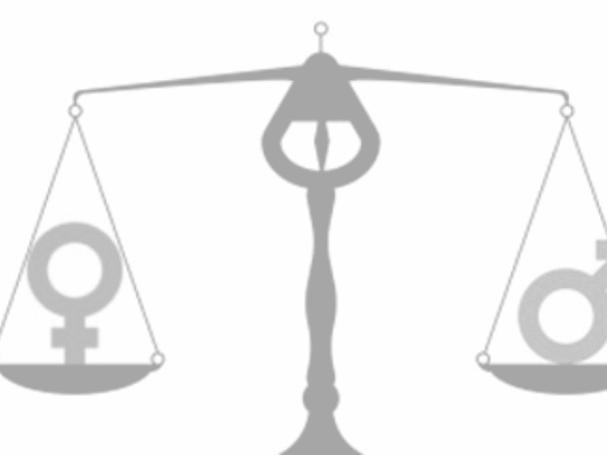
• Non-disciplinary, non-punitive individualized services offered as appropriate, as reasonably available and without fee or charge to the complainant or respondent before or after the filing of a formal complaint or where no formal complaint has been filed.
• Designed to restore or preserve equal access to the education program or activity without unreasonably burdening the other party, including measures designed to protect the safety of all parties or the school environment, or to deter sex-based harassment.
COPYRIGHT
• Supportive measures must be offered to the complainant; they may be provided to the respondent.
• Supportive measures provided to the complainant or respondent must be kept confidential to the extent that confidentiality does not impair the ability to provide the measures.
COPYRIGHT 2023 - PETRARCA, GLEASON, BOYLE & IZZO, LLC
• TheTitle IX Coordinator is responsible for coordinating the effective implementation of supportive measures.
• Identifying, offering, and monitoring supportive measures should be ongoing and continuous until the situation is resolved.
• If the District determines that allegations would not constitute Title IX sex-based harassment, it still may provide supportive measures in nonTitle IX situations, such as in response to allegations of bullying or other harassment.
COPYRIGHT 2023 - PETRARCA, GLEASON, BOYLE & IZZO, LLC
• No specific definition in the regulations.
• The Preamble indicates that the purpose of this condition is to protect complainants and respondents from the other party’s request for a supportive measure that would unreasonably interfere with either party’s educational pursuits.
• The Comments suggest that the District’s grievance process should be conducted timely to avoid supportive measures being unreasonably burdensome.
COPYRIGHT 2023 - PETRARCA, GLEASON, BOYLE & IZZO, LLC

• Counseling
• Extension of deadlines or other course-related adjustments.
• Modification of work or class schedules or student seating.
• Escort services.
• Mutual restrictions on contact between the parties.
• Leaves of Absence for employee.
• Increased security and monitoring.
• Other similar measures.
The list in the Regulations Preamble is meant to be nonexhaustive and schools have flexibility in designing these measures:
• Supportive measures should be age appropriate.
• Use common sense and good judgment.
• Consider the needs of the parties and the circumstances of the situation.
COPYRIGHT 2023 - PETRARCA, GLEASON, BOYLE & IZZO, LLC
• Expulsion
• Termination of Employment before the grievance process has been completed because these measures are disciplinary, punitive, and/or unreasonably burdensome to the Respondent.

COPYRIGHT 2023 - PETRARCA, GLEASON, BOYLE & IZZO, LLC COPYRIGHT 2024 - PETRARCA, GLEASON, BOYLE & IZZO
The regulations provide for emergency removal of a student in response to an allegation of Title IX sex - based harassment :
• The District must perform an individualized safety and risk analysis and determine that there is an immediate threat to the physical health or safety of any student or other individual arising from the sex-based harassment allegation that justifies removal.
• The student removed must have notice and an opportunity to challenge the decision immediately after removal.
• This does not modify student rights under IDEA, Section 504, the ADA, or Senate Bill 100.
• AUGUST 2024: Required to consult with any special education student’s IEP/504 Team.
COPYRIGHT 2023 - PETRARCA, GLEASON, BOYLE & IZZO, LLC
The regulations also permit a District to place a non-student employee on administrative leave during the pendency of the grievance process in response to a formal complaint.
• The Preamble states that the leave is paid so it is not unreasonably burdensome.
• The employee’s rights under ADA are not affected by the regulations.
• Also consider Illinois law, board policy and collective bargaining agreement. COPYRIGHT 2023 -


All participants from the school must be impartial.
Title IX Coordinator
Investigator
Decision-Maker
Appeal Decision-Maker
Informal Resolution Facilitator
Prejudgment of the facts at issue. Conflicts of interest.
Bias
For or against complainants or respondents generally.
For or against the parties in a specific case.

Passing judgment prematurely or without sufficient analysis or investigation.
e.g., assuming something happened based on your own preconceived beliefs.
Sex stereotyping (e.g. males are sexually aggressive; women regret sexual behavior and lie about assault) .
Assuming most harassment claims are baseless. Assuming a respondent is responsible because of rumors you have heard about him/her.
Assuming a party does not recall events because they were consuming alcohol at the time.
Disbelieving a complainant who does not give every detail in order.
An investigator has previously made comments about how female students often dress inappropriately and “ask for” attention from male students and staff. The female student alleging sex-based harassment was wearing a short skirt during the incident at issue. Does this investigator seem impartial?
Keep an open mind.
Wait to hear all the facts.
Don’t assume. Avoid gut reactions. Seek out more information.
Do not stop investigating because the facts you currently have match what you think happened.
A conflict of interest occurs when a person’s private interests might affect or compromise his or her actions, decisions, judgments, etc.
A personal interest actually interferes with a participant (e.g. investigator’s) ability to act impartially.
Direct conflict between interest and duties.
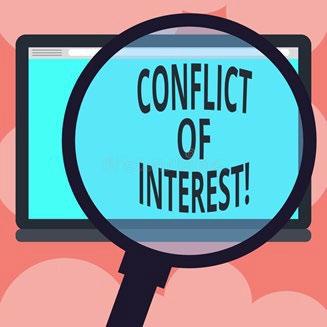
A personal interest could interfere with a participant’s ability to act impartially.
The complainant, respondent, or other third parties could reasonably believe that a participant cannot act impartially based on the participant’s personal interests.
The investigator is related to a complainant.
The decision-maker has an outside business relationship with a respondent.
The Title IX Coordinator has been close family friends with the respondent since they were children.
When does a conflict of interest disqualify a person from participating in the Title IX Grievance Process?
Objective test
Would a reasonable person believe, based on the facts at issue and the participant’s personal interests, that the participant in the Title IX process can act impartially?
How do you think people will react to your participation?
How would you react to someone else’s participation if they had the same conflict?
Favorable or unfavorable inclination or preconceived opinion. Bias can be general or specific.
General bias
Bias in favor or against complainants or respondents generally.
Specific bias
Bias in favor or against the complainant or respondent in a specific case.
Bias can be implicit.
Our attitudes, beliefs, and stereotypes might occur in an unconscious manner
All participants in the Title IX process need to be cognizant of what they are thinking/feeling, and why they think/feel that way.
Listen to the opinions of others.
The outcome should be based on the facts of the case.
Not the preconceived beliefs of an investigator, decision-maker, etc.
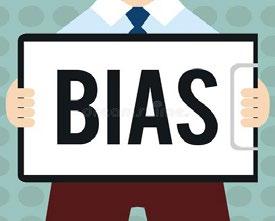
An investigator’s sibling was previously falsely accused of sexual harassment. The investigator thinks that most complainants are making things up.
Racial bias
A decision-maker previously received a bad evaluation by a superior who is now the respondent in a Title IX matter. The decision-maker does not like the respondent because of the bad review and is “out to get him.”
Each side has an equal opportunity to present evidence.
A respondent is innocent until proven guilty.
You are not an advocate for either side.


After a Complaint of Title IX sexbased harassment has been filed, the District may offer the parties an informal process, such as mediation, to resolve the Complaint. Otherwise, the “default” under the regulations is investigation and adjudication of the Complaint under the grievance process
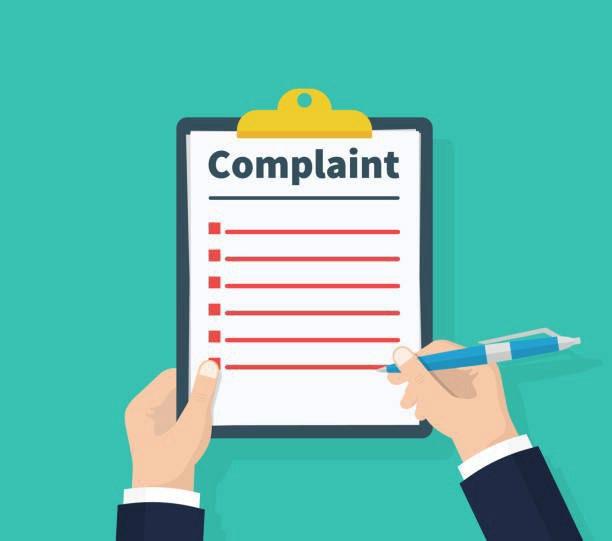
• Informal Resolution may be offered with every complaint
• The District cannot require the parties to participate in lieu of the formal grievance process.
• Informal Resolution may occur at any time prior to the District reaching a Determination on the Formal Complaint.
• There cannot be an informal resolution in cases involving employee-student sex-based harassment.
• Informal Resolution must be completed in a reasonably prompt time frame.
• The District must obtain the voluntary, written consent of each party to participate in the Informal Resolution.
• Any party has the right to withdraw from Informal Resolution at any time prior to finalizing the process.
• If Informal Resolution is attempted and not successful, the District must complete a full investigation and adjudication of the Complaint using the grievance process.
The written notice of Formal Complaint allegations must include:
• notice of the availability of Informal Resolution;
• the circumstances in which Informal Resolution precludes resuming the Formal Complaint process arising from the same allegations;
• the right to withdraw from the process at any time; and
• any consequences resulting from the Informal Resolution process, including records that will be maintained or could be shared.
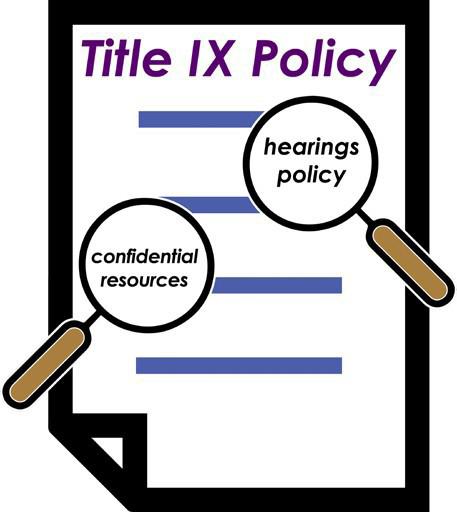
• The person facilitating the Informal Resolution must not have a conflict of interest, or a bias for or against complainants or respondents in general, or against the participating complainant or respondent.
• The person facilitating the Informal Resolution must receive training in the definitions of Title IX sex-based harassment, the scope of the District’s education program or activity, how to conduct an investigation and grievance process, the informal resolution process and how to serve impartially, including avoiding prejudgment, conflict of interest and bias.
The person facilitating the Informal Resolution may not be the same person who will act as the investigator, decision maker or appeal decision maker in the grievance process.

Informal Resolution MAY NOT be used to resolve allegations that an employee sexually harassed a student.


• The District must expressly designate at least one employee as the “Title IX Coordinator.”
(This is a significant role, so the District may want to designate more than one individual or designate deputy Coordinators to whom the Title IX Coordinator may delegate specific tasks.)
COPYRIGHT 2023 - PETRARCA, GLEASON, BOYLE & IZZO, LLC
The District must notify students, parents, employees, unions, applicants for employment of:
• The Title IX Coordinator’s (1) name or title; (2) address; (3) email address and (4) telephone number.
• The name and contact information for the Title IX Coordinator must be prominently displayed on the District’s website and in each handbook made available to students, parents, employees, unions, and applicants for employment.

• The individual must not have a conflict of interest, bias against complainants or respondents in general, or against a specific complainant or respondent.
• The person must have adequate time to devote to Coordinator responsibilities.
• The person must have required training in definitions of Title IX sexbased harassment, the scope of the District’s education program or activity, how to conduct a grievance process, how to serve impartially, including avoiding prejudgment of facts, bias, and conflict of interest.
COPYRIGHT 2023 - PETRARCA, GLEASON, BOYLE & IZZO, LLC
• Coordinate District efforts to comply with Title IX regulations –notices, staff training and record keeping.
• Receive reports and complaints of sex-based harassment from any person.
• Respond to reports and complaints of sex-based harassment.
• Identify and oversee implementation of supportive measures.
COPYRIGHT 2023 - PETRARCA, GLEASON, BOYLE & IZZO, LLC

• Oversee grievance process and serve as resource.
• Dismiss formal complaint as appropriate.
• Ensure effective implementation of any remedies determined by the decision maker.
•
COPYRIGHT 2023 -

COPYRIGHT 2023 - PETRARCA, GLEASON, BOYLE & IZZO, LLC
COPYRIGHT 2024 - PETRARCA, GLEASON, BOYLE & IZZO
Upon receipt of a report of sex-based harassment, the Coordinator must:
• Promptly contact the Complainant to discuss the availability of supportive measures.
• Consider the Complainant’s wishes regarding supportive measures.
• Inform Complainant that supportive measures are available, whether or not a complaint is filed.
COPYRIGHT 2023 - PETRARCA, GLEASON, BOYLE & IZZO, LLC

• Be sensitive and supportive; Do not make comments or use body language that suggest disbelief or that the reported behavior is the Complainant’s fault; Do not discourage the Complainant from participating in the grievance process.
• Document your conversation.
• Remind complainant that retaliation is prohibited.
COPYRIGHT 2023 - PETRARCA, GLEASON, BOYLE & IZZO, LLC
• Document supportive measures offered and accepted.
• Document supportive measures offered and rejected and the Complainant’s reason for rejecting the supportive measure.
• Document any supportive measures requested by the Complainant that will not be provided and the reason the District will not provide the requested supportive measure.
COPYRIGHT 2023 - PETRARCA, GLEASON, BOYLE & IZZO, LLC
• Explain informal resolution process if offered by District.
• Explain grievance process- investigation and determination of responsibility, appeal process.
Remember that a complaint begins the grievance process but notice of conduct that could constitute Title IX sex-based harassment triggers the District’s obligation to respond to the situation.
COPYRIGHT 2023 - PETRARCA, GLEASON, BOYLE & IZZO, LLC
• Coordinate supportive measures with school employees on a need to know basis.
• Monitor provision and effectiveness of supportive measures.
COPYRIGHT 2023 - PETRARCA, GLEASON, BOYLE & IZZO, LLC
COPYRIGHT 2024 - PETRARCA, GLEASON, BOYLE & IZZO
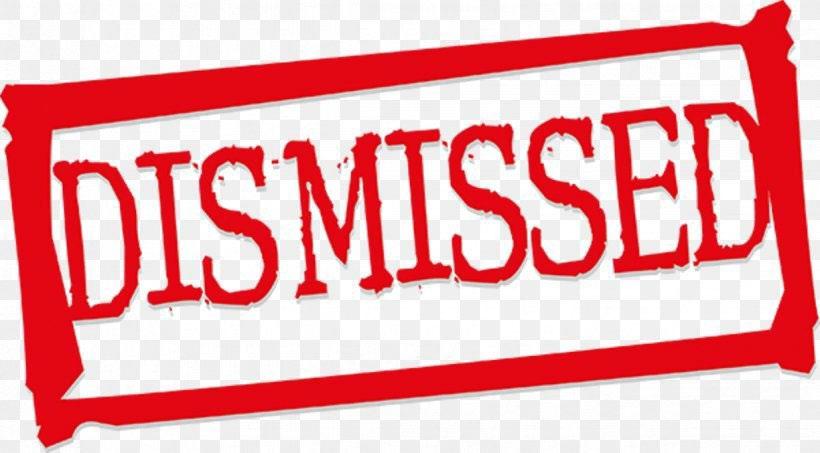
COPYRIGHT 2023 - PETRARCA, GLEASON, BOYLE & IZZO, LLC
The Coordinator must dismiss the Formal Complaint if:
• The conduct alleged does not constitute sex-based harassment.
• The conduct did not occur in the District’s education program or activity.
August 2024: No longer requirement that it must have occurred in the United States.
COPYRIGHT 2023 - PETRARCA, GLEASON, BOYLE & IZZO, LLC
The Coordinator may dismiss the formal complaint if:
• Complainant provides the Coordinator written notification that he or she wishes to withdraw the formal complaint or any allegations in the complaint.
• The Respondent is no longer enrolled in or employed by the District.
• Specific circumstances prevent the District from gathering evidence sufficient to reach a determination regarding the formal complaint or its allegations.
COPYRIGHT 2023 -
The Coordinator must promptly send notice of the dismissal to the Complainant and Respondent simultaneously and the reasons for dismissal.
Either party may appeal the Dismissal. COPYRIGHT 2023

Dismissal means dismissal from the Title IX process.
However, the District should still enforce its Code of Conduct and policies and may offer supportive measures.
• Follow the uniform grievance procedure?
• Determine consequences under the District’s bullying policy?

COPYRIGHT 2023 - PETRARCA, GLEASON, BOYLE & IZZO, LLC
The District may consolidate formal complaints against more than one Respondent, or by more than one Complainant against one or more Respondents, or by one party against the other where the sex-based harassment allegations arise out of the same facts and circumstances.
COPYRIGHT 2023 - PETRARCA, GLEASON, BOYLE & IZZO, LLC

COPYRIGHT 2023 - PETRARCA, GLEASON, BOYLE & IZZO, LLC COPYRIGHT 2024 - PETRARCA, GLEASON, BOYLE & IZZO
The regulations provide for emergency removal of a student in response to an allegation of Title IX sex-based harassment:
• The District must perform an individualized safety and risk analysis and determine that there is an immediate threat to the physical health or safety of any student or other individual arising from the sex-based harassment allegation that justifies removal.
• The student removed must have notice and an opportunity to challenge the decision immediately after removal.
• This does not modify student rights under IDEA, Section 504, the ADA, or Senate Bill 100.
The regulations also permit a district to place a non-student employee on administrative leave during the pendency of the grievance process in response to a formal complaint.
• The preamble states that the leave is paid so that it is not unreasonably burdensome.
• The employee’s rights under ADA are not affected by the regulations.
• Also consider Illinois law, board policy and collective bargaining agreement.
The Coordinator may also be the investigator The Coordinator (or the separate investigator) may facilitate the parties’ opportunity to inspect and review any evidence obtained as part of the investigation.
COPYRIGHT 2023 -
• Coordinator must complete the investigation
AUGUST 2024:
WRITTEN INVESTIGATIVE REPORT NO LONGER REQUIRED
EXCHANGE OF QUESTIONS NO LONGER REQUIRED
COPYRIGHT 2023 - PETRARCA, GLEASON, BOYLE & IZZO, LLC

The Coordinator must oversee implementation of supportive measures and remedies, as applicable.
COPYRIGHT 2023 - PETRARCA, GLEASON, BOYLE & IZZO, LLC
COPYRIGHT 2024 - PETRARCA, GLEASON, BOYLE & IZZO
The Title IX regulations require that certain records be maintained for SEVEN years from the date the proceedings conclude and any sanctions or remedies are implemented. It is recommended that records be maintained for longer than seven years if the complainant or respondent is a minor, through the relevant statute of limitations for the minor filing a civil suit regarding the allegations.
COPYRIGHT 2023 - PETRARCA, GLEASON, BOYLE & IZZO, LLC

• Records of any actions the District takes, including supportive measures, in response to a report of sex-based harassment.
• Document basis for conclusion that District response is not deliberately indifferent and measures have been taken to restore or preserve equal access to the school’s education program or activity.
• If the District does not provide complainant with supportive measures, it must document why not providing the supportive measure(s) was not clearly unreasonable in light of known circumstances.
• All materials used to train Coordinators, investigators, decision-makers and any person facilitating an informal resolution process.
• These materials must also be made available on the District’s website.
COPYRIGHT 2023 - PETRARCA, GLEASON, BOYLE & IZZO, LLC COPYRIGHT 2024 - PETRARCA, GLEASON, BOYLE & IZZO
• Records of each sex-based harassment investigation, including determination of responsibility, any disciplinary sanctions against Respondent, any remedies provided to Complainant to restore or preserve equal access to the school’s education program or activity.
• Transcript from any hearing.
• Documents from any appeal and the result of the appeal.
• Documentation of any informal resolution and the result therefrom. COPYRIGHT 2023

JUNE
BY: PETRARCA, GLEASON , BOYLE & IZZO , LLC W W W. PETRARCAGLEASON. COM
The school must provide the parties with written notice containing the following information:
◦ The school’s grievance process, including any informal resolution process.
◦ The allegations of sex-based harassment, including details about:
◦ Identities of the parties.
◦ The conduct allegedly constituting sex-based harassment.
◦ Date and location of the alleged incident(s).
◦ The parties may have an advisor of their choice.
◦ The advisor can, but is not required to, be an attorney.
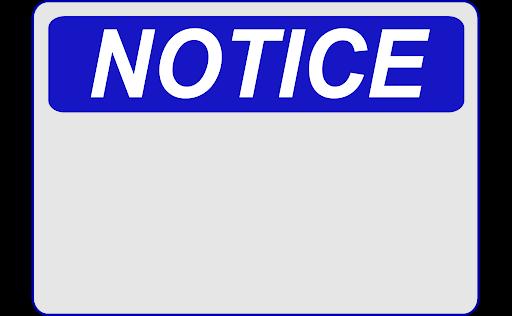
◦ The parties have the right to inspect and review the evidence gathered during the investigation.
◦ The parties must receive notice with sufficient time to prepare a response before any initial interview.
Can a school investigate allegations that are not in the notice provided to the parties at the beginning of the grievance process?
◦ Yes, but only if it provides notice of the additional allegations to the parties.

A school is required to investigate sex-based harassment allegations that are made in a complaint.
During an investigation, the school gathers evidence and proof related to the sex-based harassment complaint.
Specific steps will vary depending on the specific case.
◦ Nature of the allegations.
◦ Age of the parties (e.g., student or employee).
◦ Number of people involved or with knowledge.
The burden to gather evidence is placed on the school investigating the sex-based harassment complaint.
◦ The burden is not on the complainant.
◦ The burden is not on the respondent.

Although it is the school’s burden to gather evidence, schools may not restrict the abilities of the parties to discuss allegations or to gather and present evidence. The parties must have an equal opportunity to present witnesses and evidence.
◦ Parties can present both fact and expert witnesses.
◦ Other inculpatory and exculpatory evidence.
◦ Inculpatory = evidence indicating guilty/responsibility.
◦ Exculpatory = evidence indicating innocence/lack of responsibility.
The school cannot restrict the parties’ ability to discuss the allegations.
The parties must have the same opportunities to have other people present during any grievance proceeding.
◦ e.g., to be accompanied at an investigation meeting by an advisor.
◦ The school can establish restrictions regarding how much the advisor can participate, but the restrictions must apply equally to the parties.
The school must provide written notice to a party whose participation is invited or expected with information about:
◦ Date
◦ Time
◦ Location
◦ Participants

◦ Purpose of hearings, interviews, or other meetings. Notice must be provided with sufficient time for a party to prepare to participate.
Documents, including electronic records.
Emails and other written communications.
Photos/videos
Schedules
Seating Arrangements
Personnel/ Student Records
Social Media Posts
Interviews

Identify sources of evidence (interviews, documents, emails, student/personnel records, etc.).
Identify potential witnesses.
◦ Complainant
◦ Respondent
◦ Other witnesses Create a timeline.
◦ In what order do you want to interview witnesses?
◦ Timelines for completing different portions of the investigation.
Choose order of interviews.
Prepare an outline of questions, but will need to deviate from them.
Conduct interviews separately.
Record the interview or take good notes.
Ask open-ended questions – the goal is to gather information; not to confirm certain beliefs.
Listen closely – ask follow-up questions.
Clarify any confusion. Make sure you understand what a witness is saying.
Repeat questions in different ways to ensure consistent response.
Disclose information only as necessary to not influence witness.
Assess credibility of witnesses and parties.
You may want to visit the location of the alleged harassment.
Remind parties and witnesses that retaliation is prohibited.
The school must provide the parties with equal opportunity to inspect and review evidence directly related to the allegations of the formal complaint.
◦ Including evidence the school does not intend to rely upon.
◦ Including all inculpatory or exculpatory evidence.
◦ Whether obtained from a party or a different source.
◦ Parties must have at least 10 days to submit a written response before the investigative report is completed.
The Report must fairly summarize relevant evidence. The report must be sent to both parties (and their advisors) before a hearing (if a hearing is provided) or the determination of responsibility.
AUGUST 2024: Both parties must be provided a reasonable opportunity to respond to the evidence.
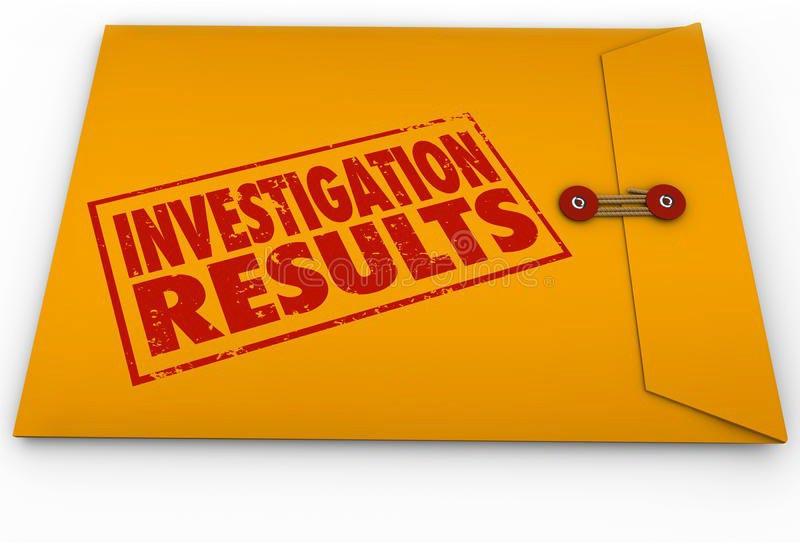
Evidence is relevant if:
◦ It has any tendency to make any fact more or less probable than it would be without the evidence, AND
◦ The fact is of consequence in determining the action.
What is not relevant?
◦ Privileged information (e.g. attorney-client privilege).
◦ A party’s medical records (unless the party provides voluntary written consent).
◦ The complainant’s sexual predisposition, unless:
◦ It is offered to prove that someone other than respondent is responsible, OR
◦ It relates to complainant’s prior sexual behavior with the respondent and is offered to show consent.
• Investigator collects evidence about the allegations.
• Complainant and Respondent review evidence gathered by the investigator and may prepare a written response to the evidence for the Investigator’s review.
• August 2024: Submission of relevant questions by the parties no longer required.
CAN be the same person(s) as the Title IX Coordinator or the investigator(s).
Impartial and unbiased
◦ In general AND in the specific case. Cannot have a conflict of interest.

◦ If the decision-maker has a conflict of interest, he or she must be recused from the case.
School can choose whether to require allegations be proved by “preponderance of the evidence” or a “clear and convincing evidence” standard. The school must use the same standard in all cases and whether the Respondent is an employee or a student.
Is it more likely than not that the respondent committed the conduct?
◦ i.e., is it > 50%

Highly and substantially more likely than not that the respondent committed the alleged conduct.
◦ This is a higher burden than “preponderance of the evidence.”
◦ This is lower than the “beyond a reasonable doubt” standard used in criminal cases.
The written determination must:
◦ Identify the allegations.
◦ Describe the procedure taken from the receipt of the formal complaint through determination, including:
◦ Notification to the parties.
◦ Interviews
◦ Site visits
◦ Methods used to gather evidence, and
◦ Hearings held, if any.

The written determination must also include:
◦ Findings of fact supporting the determination.
◦ Conclusions regarding the application of the school’s code of conduct to the facts.
◦ A statement of, and rationale for, the result as to each allegation.
◦ Determination regarding responsibility.
◦ Any disciplinary sanctions imposed on the respondent.
◦ Whether remedies designed to restore or preserve equal access to the education program or activity will be provided to the complainant.
◦ Procedures and permissible bases for the parties to appeal.
The school must provide the parties with the written determination simultaneously.
Remedies are measures provided to a complainant when there has been a determination of responsibility against the respondent.
Remedies must be designed to restore or preserve equal access to the school’s education program or activity.
The Title IX coordinator is responsible for providing remedies.
The school must offer both parties an appeal from a determination regarding responsibility, and from any school’s dismissal of a formal complaint or any allegations on the following bases:
◦ Procedural irregularity that affected the outcome.
◦ New evidence that was not reasonably available at the time of the determination/dismissal, that could affect the outcome.
◦ Title IX Coordinator, investigator, or decision-maker had a conflict of interest or bias that affected the outcome.
◦ Generally for/against complainants or respondents.
◦ For/against the individual complainant or respondent.
The school may equally permit the parties to appeal on additional bases.
Must be different person than:
◦ The decision-maker who made the initial determination of responsibility.
◦ The investigator
◦ The Title IX Coordinator
Must be unbiased, and cannot have conflicts of interest.
School must notify the other party in writing when an appeal is filed.
Must give both parties a reasonable, equal opportunity to submit a written statement in support of, or challenging, the outcome. Issue a written decision.
◦ Must describe the result and rationale

Provide the written decision simultaneously to the parties and their advisors.